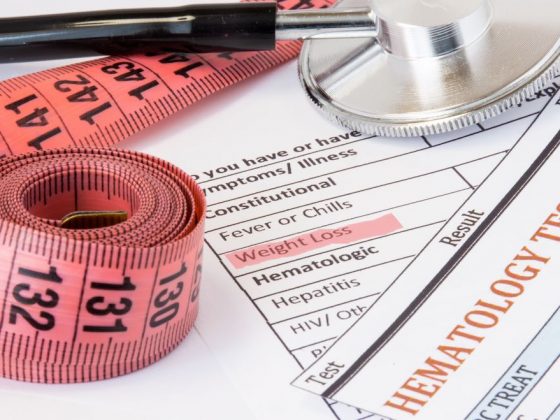Each additional total or unique monthly antimicrobial prescription is associated with inferior overall and breast-cancer-specific survival in women with triple negative breast cancer (TNBC). The study published in Nature Communications, 12 April 2023, found that the association was directly related to lymphocyte count.
“We found a surprisingly strong and sustained increased risk of death in patients who had received multiple antimicrobials any time during the three years after their initial diagnosis,” says Julia Ransohoff, the first author, from Stanford School of Medicine, California. “The association was related to changes in peripheral lymphocyte counts, suggesting a link between the gut microbiome and survival from TNBC.”
Antimicrobials (a class of drugs including antibiotics to treat bacterial infections and antifungals to treat fungal infections) are known to disrupt the gut ecosystem, with the impact on breast cancer outcomes unclear. A 2022 study published in J.Clin.Epidemiol involving a cohort of more than 7,000 breast cancer cases, treated before the introduction of checkpoint inhibitors, found that antimicrobial exposure up to six months before diagnosis and treatment was associated with inferior survival.
For the current study, the investigators, led by Allison Kurian and Ami Bhatt, evaluated the interaction of antimicrobial therapy with time-varying absolute lymphocyte count levels and survival over time. They chose to focus on TNBC after their earlier 2018 study, published in Clin Cancer Res found that higher absolute lymphocyte counts were associated with improved TNBC survival. The association has not been found with other types of breast cancer.
“Building on this finding, in the current study we linked antimicrobial exposure to changes in absolute lymphocyte count and to both breast-cancer-specific and overall survival,” says Ransohoff. “We were interested in studying whether it was just the number of antimicrobial exposures associated with survival, or whether the diversity of exposures was also important. For example, if a patient received a single medication five times, did this have the same survival association compared to a patient who received five different medications?”
In the study, 799 women diagnosed with stage I–III TNBC between January 2000 and May 2014, treated at Stanford Health Care and Palo Alto Medical Foundation, were observed for a minimum of five years. The investigators used the Oncoshare database, which integrates electronic medical records with data from the California Cancer Registry. The study was performed prior to the immune checkpoint era.
Results showed that 84% of patients (n=654) used antimicrobials after diagnosis, 99% of these patients (n=649) received antibiotics, 24% (n=153) received both antibiotics and antifungals, and only 0.8% (n=8) received antifungals alone.
Over the observation period the number of total and unique antimicrobial prescriptions ranged from 0 to 59 and 0 to 26 respectively.
Of those who ever used antimicrobials 23% (153 out of 654) died compared with 20% (24 out of 118) who had never used antimicrobials.
Each additional total antimicrobial exposure was associated with inferior breast-cancer-specific survival (HR=1.05, 95%CI 1.01–1.08), as was each unique exposure (HR=1.18, 95%CI 1.13–1.24).
Each total antimicrobial exposure was associated with inferior overall survival (HR=1.05, 95%CI 1.02–1.08), as was each unique exposure (HR=1.17, 95%CI 1.12–1.23).
The statistical model correlating the exposure of antimicrobials with survival considered how lymphocyte counts change in the study time period and demonstrated the connection between antimicrobial exposure, lymphocyte counts and survival.
The antimicrobial–mortality association was found to be independent of changes in neutrophil count, unrelated to disease severity, and to be sustained through the three years following diagnosis. “In this study, we found a strong and sustained association between increasing quantity and diversity of antimicrobial exposures on TNBC outcomes through year three following diagnosis. This association was related to changes in peripheral lymphocyte counts and suggests a link between the gut microbiome and survival from breast cancer,” says Ransohoff.
The lack of association between either overall survival or breast-cancer-specific survival and absolute neutrophil count, she adds, suggests that absolute neutrophil count is not along the causal pathway from antimicrobial exposure to increased mortality. “The reason we looked at both neutrophils and lymphocytes was to see if the survival association we observed was specific to lymphocytes or related to the immune system as a whole. The fact that we only found an association with lymphocytes really tells us that it is specific to that arm of the immune system,” says Ransohoff.“We hypothesize that antimicrobial exposure disrupts the gut microbiome, which in turn leads to changes in the quantity and function of both circulating and tumour-directed lymphocytes, which leads to changes in the efficacy of chemotherapy and differential patient outcomes.”
Next, the team plans to evaluate the impact of antimicrobial exposure on TNBC patients treated with immune checkpoint inhibitors, which were approved for use in combination with chemotherapy in 2021. To investigate whether the microbiome is the critical factor between antibiotic use and cancer outcomes, they hope to design a new study that directly correlates gut microbiome composition with lymphocyte numbers and long-term cancer survival.
Since TNBC does not express hormone receptors or the HER2 receptor, the authors believe the findings may be generalizable to other common cancers, such as lung and colon, rather than other types of breast cancer.
“It is important to interpret the results of our study with caution. Infections can be life-threatening, and antimicrobials are life-saving, and so infections need to be treated. Further, the impact of each individual exposure is small,” says Ransohoff. “However, we do hope that our findings help guide clinicians to consider the use of antimicrobials more judiciously while counselling patients with reassurance about the benefit–risk ratio of their use.”












